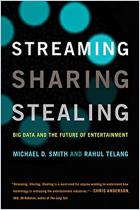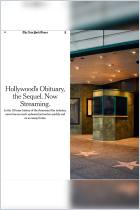
Recommendation
Netflix is so ubiquitous that it’s a verb, with users saying “Let’s Netflix it,” or “Netflix and chill.” Netflix is an interesting case study for those interested in the future of global television, says media and communication researcher Ramon Lobato, as it leverages both local and global strategies, catering to audiences multifaceted desires within one platform. Glean valuable insights into how Netflix’s rise to global dominance impacts media policy, user preferences and television distribution across the world. For Lobato, Netflix’s journey from DVD-rental service to a major disruptor of the entertainment industry illustrates the tensions between the desire for globalization and localizaiton.
Summary
About the Author
Ramon Lobato is the author of The Informal Media Economy; Shadow Economies of Cinema; and Geoblocking and Global Video Culture. He’s also a media and communication senior research fellow at RMIT University, Melbourne.

















Comment on this summary or Start Discussion